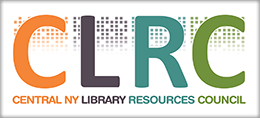Digital Library Federation 2023
St. Louis, MO
November 2023
The Digital Library Federation Forum, from November 13 to 15, was held in St. Louis, MO. As a current LIS student interested in all things digital, the panels and presentations gave me a wonderful overview of some of the current hot topics in the field. This was my first conference presentation as a library student, and I spoke about the Digital Humanities project I completed earlier this year: curating a dataset about ancient libraries. I connected with amazing people and got to meet up with SU librarians, as well as alumni of the SU MLIS program.
The opening plenary session with invited guest Dr. Kishonna Gray, Associate Professor of Writing, Rhetoric & Digital Studies and Africana Studies, University of Kentucky, set the stage for the rest of the conference. Her presentation drew upon her experiences as a gamer and professor, discussing gaming as a form of social commentary. As someone with very little video game experience, I thoroughly enjoyed Dr. Gray’s talk.
Context and digital projects have become a special interest of mine – it was a topic I covered in my presentation at the conference. It was interesting to see how other librarians saw the concept of context and maintaining crucial knowledge and data within these digital projects. While I attended many presentations, the panel discussion “Expanding a Model for Collections as Data Work to Identify Jim Crow Laws Across Multiple Southern States” was one that stuck with me. This panel included individuals from three different institutions who collaborated on this project. Each person was able to speak to different parts of the project; for example, Tolu Odukoya spoke more of the machine learning and testing aspect of the project, and Loren Moulds spoke more about the ethics behind teaching a machine how to “find things that are racist.” It made me think deeper into the implications of trying to teach such an abstract concept to a machine. How do we define racism? How do we ask these larger, humanistic questions and do research using a computer? Attending this panel, I kept thinking back to the opening plenary. Dr. Gray’s talk raised questions such as how do (or can) games properly represent identity?
If there is one big thing I took away from this conference, is that these projects are not done in a silo – there are multiple partners (both in and out of the library) who take part in the process. It is important for the library to help cultivate these relationships, as they are unique in the sense that they do not ‘belong’ to one college or department; indeed, they can help foster intercollege relationships.
Overall, I had a wonderful experience attending this conference. I left feeling excited to enter the field and eager to learn more. Thank you again to CLRC for the grant, which helped facilitate my participation at DLF.
Katya Mueller
Wilhelm Library Leadership Faculty Assistant, Syracuse University
Are you interested in being our next Professional Development Award recipient? Check out the award page for the rules & requirements!
